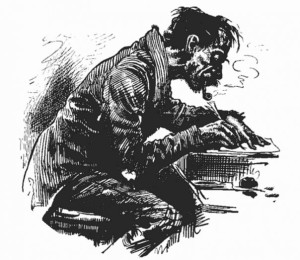So the other day I heard a report about a new placebo study. According to researchers, placebos (sugar pills) can relieve ailments, even when a patient knows he’s taking a placebo.
Before the study, medical professionals assumed that placebos wouldn’t work if patients knew they were being given sugar pills. It turns out that assumption was wrong. In a study of patients with IBS (er, Irritable Bowel Syndrome), 60 percent of patients reported that they felt better after knowingly taking a placebo twice a day.
That day I was feeling uninspired in my writing (which probably explains why I was surfing the Internet and reading about placebo studies). So I wondered: If a placebo can cure cranky bowels, could it help me break through a minor case of writer’s block?
I decided to run my own unscientific study. I didn’t have any sugar pills on hand, so I reached for the next best thing: my daughter’s jelly beans. I figured that labeling and ritual had to be part of the reason why placebos work, so I poured the jb’s into an empty prescription container. (And I have to report that jelly beans look extremely potent when they’re staring up at you from a bottle of blood thinner medication.) Then I put a nice label on it marked “Creativity.”
As part of my morning ritual I started taking two “creativity pills” with my coffee. As I solemnly popped the beans, I paused to meditate for a few moments about my writing goals for the day.
And by God, it worked. I blasted right through that writer’s block. I wrote four pages that day, and haven’t looked back since.
The only thing is, now I’m afraid to stop taking the beans. I think I’m hooked. For my next batch I’m thinking of getting those special-order M&Ms–the ones you can order with little messages written on them. I’ll get them labeled with something like, “Writing is rewriting,” or whatever fits.
What about you? Do you have any silly rituals that help you get your creativity engine going?
And if you happen to be in the market for a writing pill, I can get you a great deal on a placebo.







